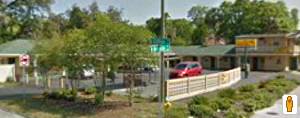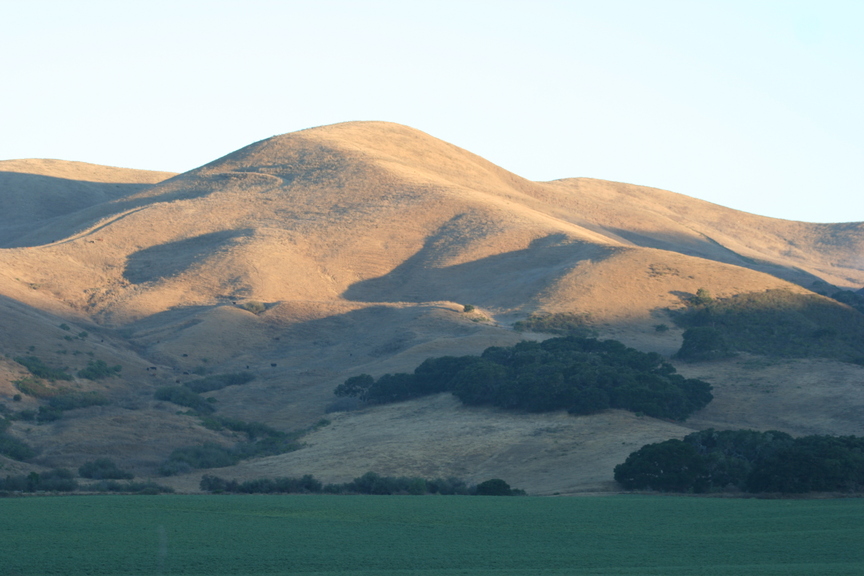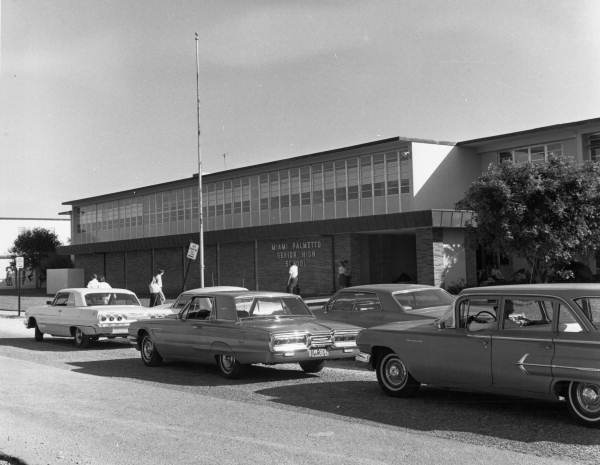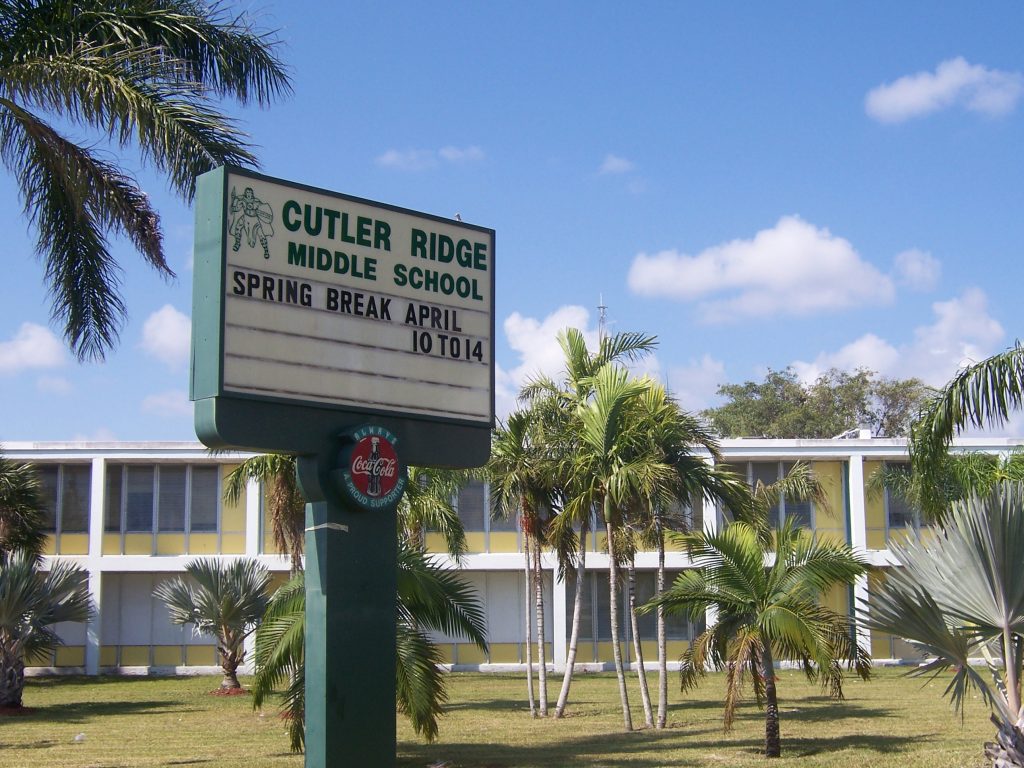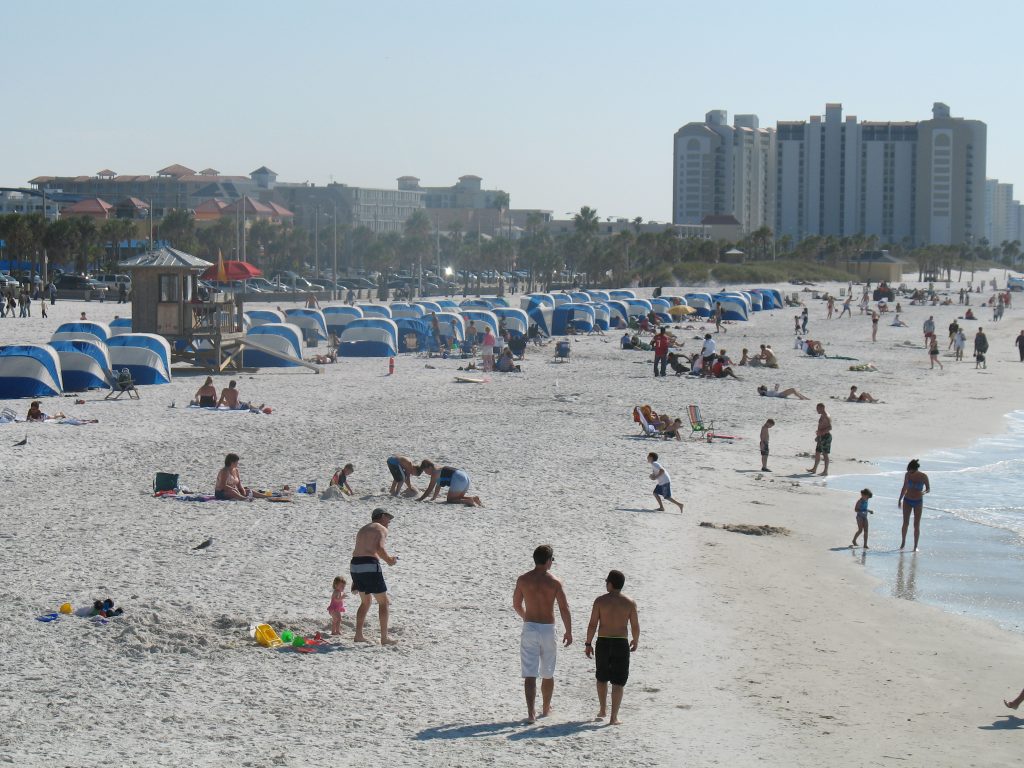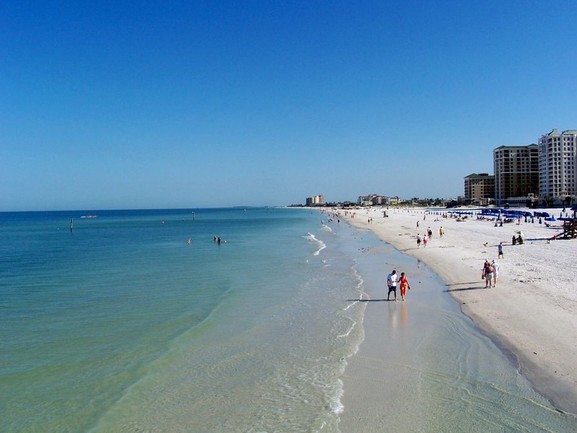Gail Chord Schuler's Childhood (1957 – 1975)
I believe that the Jesuit Order, even back in 1957, practiced genetic profiling, just like they did with Nazi Germany during the Holocaust. They determined that my genetic profile (half Catherine the Great and half King David) made me a dangerous person, and that I must be eliminated or weakened.
How strange that as a young infant I almost died (September/October 1957) because of an allergy to my formula. My birth became a foretaste of my future life. Baby “Catherine the Great” almost died of dehydration the first month of her life. I vomited so much that my belly button became permanently protruded. My first few months of life, when the fat cells are formed, I had less than most, and became a thin, emaciated girl. My mother concluded the pediatrician’s incompetence almost cost her her baby, and went to another doctor. The new doctor determined baby Gail had an allergy to her formula and I survived.
I, born to divorced parents, grew up in a humble home in Florida– while my mother struggled to keep bread on the table, so no one would guess I had Howard Hughes as a great uncle.
How absurd to suggest that I, such a poor kid, could have a genetic profile from Howard Hughes or Catherine the Great. The Jesuits had manipulated my family and blood relatives to keep secret my family tree, to ensure my fabulous royal genetic profiles would never risk discovery, so that Jesuits could destroy and eliminate me with subtlety and stealth.
I believe the Jesuits began their sabotage of my brain as soon as possible, to minimize the genius intelligence I had at birth, to minimize any threat I could become to their dream of world dominion.
I believe the Jesuits used Russia as their puppet (during my younger years) to help them realize their quest for world dominion, because then they could use the Cold War between Russia and the U.S. to keep Americans and Russians in ignorance about my genetic profile, so that Jesuits could target and weaken me in secret.
(The following information about Howard Hughes I received through communications with Brent Spiner). At Howard Hughes’s birth, the Jesuits covered up his Jewish background. To accomplish this, they used the shame his orthodox Jewish mother felt over the disgrace she brought to her family by her two pregnancies with a Gentile man (which resulted in my paternal grandfather and Howard Hughes). So Howard Hughes’s Jewish ancestry stayed secret, especially that he had a King David genetic profile. Howard Hughes’s real Gentile dad (my paternal grandfather’s real dad) and a Gentile step-mother raised Howard Hughes, while my grandfather’s real Jewish mother (Howard Hughes’s real mother) and a Gentile step-dad raised my grandfather. The Jesuits played on this secrecy about the Jew in Howard Hughes and his brother (my grandfather) to the hilt, and decided to play on the shame brought to Howard Hughes’s orthodox Jewish family, so they could practice anti-Semitism on our family with secret subtlety. Now they could target the Jewish Howard Hughes and no one, not even Howard Hughes, would suspect he suffered from satellite-induced anti-Semitism.
The Jesuits had reason to fear the genetic profile of the baby Gail. Catherine the Great faced anything in her life, no matter how monstrous, with head-on directness and fortitude. This made her a great leader.
The Jesuits did not want me to grow up strong, like Catherine the Great. By the time I reached school age, I had no confidence, I barely spoke a word to anyone.
My mother, under Jesuit pressure, convinced me I was worthless. My father only sent us Christmas cards once a year and that was all we ever heard from him, ever.
Throughout my elementary school years (age six to about age ten), I began my yearly three month summer vacations to the humble home of my paternal grandparents at the motel they owned in Tampa and then (from about age eleven to twelve), after they retired from the motel business, we stayed at their Tampa home. I didn’t realize it at the time, but I spent my entire summers (as a child) with Howard Hughes’s genetic brother (my grandfather).
My paternal grandparents showed me a strong marriage in action. Though I always thought my grandfather a little crazy and off-balanced because once he wanted to convince you of his claims, you couldn’t get him to shut-up no matter what you said, until he was convinced that you agreed with his position. If you didn’t agree with him, he’d see right through you; even if, with your mouth, you agreed with him. He’d chase my grandma around the house and say, “You aren’t listening to me! You know we have to talk to my brother about this. He’s dealing with crooks and they’re going to ruin him.”
“Yes,” she’d reply as she ironed for the family and whipped about the house. My grandmother kept her house spotless, and always agreed with grandfather unless she felt he was too hard on us. My grandfather could pin you to the wall and go into tirades, his face beet red, while he drilled his opinions at you over and over. He did this to me sometimes and I emulated my grandma and agreed with him, because to disagree with him, meant a longer period, with his face into yours, as he held you hostage against the wall.
Grandpa despised all the money spent on the English monarchy and when their ostentation and ceremonies showed on television, he’d rampage how Britain wasted its money to retain its monarchy and that America’s government surpassed by far the British monarchy, that the English people wasted their government money to retain their monarchy, that they should emulate the United States. He raged that the United States far surpassed England. Perhaps the Jesuits manipulated my grandfather’s brain to give him these convictions against the monarchy. The way he thrust you against the wall to rail at you his opinions, made him eccentric and overboard. Once he got going on a topic, he raged at you and pinned you to the wall in a tirade, until he was convinced he had forced you into agreement with him. Perhaps the Jesuits attempted to induce in my grandfather mental problems as they did his brother, Howard Hughes.
He never missed an episode of Gunsmoke and admired the Matt Dillon character and boasted often of his brother, a rancher in South Dakota. His brother’s death hit him hard. He never mentioned Howard Hughes (that I recall), nor did he mention his Jewish mother. One time when I told him (at eighteen–1976) that I dated a Jewish man and expressed interest in Jewishness, he came to me and whispered in my ear that I had Jewish ancestry. That was the only time he mentioned anything about Jews. He shunned this topic.
I rarely saw my pilot dad when I stayed with his parents. The one or two times he showed up (when we stayed with his parents), he behaved with aloofness, stayed only a day in the Tampa area (usually at a motel or hotel), stopped by for family photos, and said only a word or two for his hour visit.
My grandmother rarely argued with grandpa, just mumbled her agreement and smiled and laughed at his antics. His arguments showed brilliance in perception, logic and ability to read people.
The crooks could fool my grandmother, but they didn’t fool grandpa–he saw right through them and didn’t like how my father handled my mother (or any of his wives). My father married four times. My mom was his second wife. Grandpa thought perhaps my mother’s approach to my dad wasn’t right and that was how she lost him. He recalled how my mother once told him that Bob (my father) would never leave her and he recalled how naive my mother was about my dad and that she really didn’t understand Bob (his son).
If you didn’t agree with grandpa, he’d see right through you, regardless of what you’d say to him. That’s why he’d pin you to the wall and drum his arguments into your head over and over.
He voiced political opinions with fervor, and often wrote newspapers letters in outrage if a Republican President received criticism in the news. His letters got published. President Richard Nixon was his idol (even after his impeachment) and grandpa always voted Republican.
My grandparents bought me about everything I wanted, and took my sister and I to Clearwater beach every weekend. Grandma criticized no one, and both my grandparents treated my sister and I with warmth. But because my mother criticized me with heat and passion, the few times my grandfather criticized me, devastated me.
Both my grandparents were born again Christians, though they didn’t go to church, except for Easter or Christmas services. My grandfather, before I was born, was an ordained Swedish Baptist minister.
My grandparents, the owners and managers of a motel in Tampa, lived (until they retired) in a room above the office on a second floor. Then they sold the motel to another. They had a black and white cat named Smuggie (from about 1968 to 1977), white, with big black spots and a black spot over its nose (so it got its name Smuggie).
Grandpa put the cat to sleep when my grandmother developed a gastrointestinal problem (around 1977) that put her in the hospital. She couldn’t stop vomiting. The doctors couldn’t figure out the cure or how she got sick. Finally grandpa pulled her out of the hospital and cared for her himself and she recovered.
I loved to play with this cat as a child. My mother refused to have cats when we grew up, perhaps because they had claws and she only let us have toy poodles. My grandparents also had a black maid named Alfreda. They picked her up every day to work at the motel, and she became like family to them. Alfreda used to warn my grandparents not to drive through the Tampa black slum neighborhoods, she said it wasn’t safe.
My grandparents took me to Clearwater Beach just about every weekend. I went to the beach so much my skin became like a black person. I loved bringing my bucket to dig up the little coquina clams that burrowed into the sand every time the surf rolled back. From the beach I collected shells, started a shell collection, and labeled them with slips of paper into compartments (according to shell families) with scientific names. The white sand went miles and miles and the ocean water, clean and clear, glistened so that you could see through it to the bottom.
At seven, my mom had me take swimming lessons from the Red Cross at the public swimming pool, and I passed beginning swimming lessons.
Before my grandparents retired from the motel business, we swam in the motel pool all the time. I learned the crawl, the backstroke, the sidestroke (my favorite) and, physically active as a child, could dive under the water for many minutes holding my breath. I did back flips from the poolside, so that my body twirled like a fish as I flipped backwards and plunged head first into the pool. As a preteen I taught myself modern dance and gymnastics and did back flips all the time on the ground. I climbed trees, loved to play with electronic race car sets, and on the streets of my hometown, played quarterback and football.
We stayed in the vacant rooms of our grandparents’ motel for the summer. Sometimes they took us to swim in a fresh water lake (designed for swimming) connected to a river, located in Tampa.
One time when I swam at this lake, I went out to the rope that separated the deep part of the lake from a river. A swift undercurrent gripped me like a tornado and I clutched onto the rope quick and hard, before it whipped me down. As good a swimmer as I was, if I hadn’t caught that rope as that hurricane force whipped my feet and body down, I might have drowned. This may have been another attempt by the Jesuits to kill me when I was a child.
In 1969, in sixth grade, though I had not studied or prepared for it at all, I won the spelling bee championship for my elementary school, and my name was mentioned in The Miami Herald.
My sixth grade science textbook mesmerized me. I devoured the entire book within two months, instead of the normal nine months.
Around sixth grade, while I stayed at my grandparents, I taught myself the stockinette and pearl stitch from a knitting instruction book, asked my grandparents to buy knitting needles (about size 10) and blue and white yarn, and knit myself a corn blue and white horizontal striped stocking cap with a blue tassel. Thus I started my trend of reading books to learn how to do things. Most of the writing skills I acquired in my thirties, I learned from reading writing instruction books.
In 1971, my eighth grade experience at my Jr. High, as a girl who rarely spoke a word all day, I felt myself dirty and ugly. It was a lonely experience for me. No one had told me that Jesus died on the cross for me, and sometimes when I left my front door to go outside and play with my friends, I told myself I’d be an outstanding young lady today, so that perhaps when I died I could have enough good deeds to go to heaven. But I could never keep it up for long, and didn’t have the will or desire to be a good girl all day, and knew from reading the Sermon on the Mount in Matthew, that I’d go to hell.
As a thirteen year old, I decided to learn how to type. So I bought a simple typing instruction book and followed it from beginning to end and taught myself how to type off my mother’s manual typewriter. Because I’d given myself this head start, when I took typing my senior year of high school, I was second best in my class. Throughout my life, I’ve never hired typists for anything. I type all my own work.
My mother screamed into my head my whole childhood that I was selfish and no good, like my father, so I took myself too seriously and any criticism I received devastated me.
Sometimes I wouldn’t take a bath or shower for days. During my eighth grade Spanish class, one of my classmates, daughter of a Methodist minister, looked me over and stared at my legs and body with disgust. Her look of disgust when she looked me over, made me want to hibernate and vanish. It got to the point that I dreaded school, because every time she gazed at me, I saw the same expression of disgust. Whenever she saw me, she’d huddle with a group of girls, whisper and look me over, and stare at me with disgust.
Throughout my school years, until I accepted Christ in ninth grade, I’d sit in my classroom and never say a word. Afraid of anything that could bring me criticism, I went through the motions of school in silence.
I felt myself a no good, worthless girl, and had no confidence to talk to my classmates. I did make friends with a half Japanese/half Caucasian girl named Shirley Black and became real close to her. I spent the night with her and told her things that I told no other. One of the few who understood me, her military family transferred to Okinawa, then I lost my bosom friend. Most of my childhood I felt drenched in loneliness, felt no joy inside, but felt like a spar in the middle of a vast sea. I did make friends, but never considered myself popular. Though the friends I made, often felt a real devotion towards me. It disturbed me that when I was three, my father deserted us. I determined when I grew up I’d never marry a man like my father, and that I would never, ever be as mean as my mother to any of my children. I felt she criticized me way too much and was cruel.
Finally, at the end of my eighth grade year, this girl named Susan (tall, thin, prim and proper and obsessed with her image) spread enough poison about me and treated me like dirt, that school depressed me and I dreaded each school day, because she’d look me over with scorn and gaze at me like trash. The way she looked me over with disgust–horrified and depressed me. I hadn’t done anything to her, but she just didn’t like me, didn’t like my shyness, or my dirtiness or my skinny, skinny legs. I had no self-respect, and every time I saw her, wanted to hibernate. She reinforced to me that all the horrible things my mother said about me were true.
After Shirley Black’s family transferred to a military base in Okinawa, Shirley wrote me letters, and told me she had accepted Christ and encouraged me to find God also. She tried to explain to me how to find Him, and because I admired her and considered her my friend, I tried to do what she said, but I didn’t grasp how to find God. She didn’t make it plain to me.
Around the winter of 1971, as I listened to the local rock station, I heard David Cassidy sing “I Think I Love You”, and loved the song and developed a girlish crush on David Cassidy and watched every episode of The Partridge Family, a show about an American singing family with Shirley Jones and David Cassidy, on television. I used to dream about him every day and longed to move to Southern California so I could be near him. To my astonishment, my mother announced in the spring of 1971, that we would move to Los Angeles (where David Cassidy lived)! I couldn’t believe it. My spirits lifted, I could get away from Susan and start a new life in the cool state of California where David Cassidy lived. I’d never seen mountains and had only lived in Florida my entire life.
We moved to California in June 1971, our two poodles (Chibby and Coolie) flew on the jet with us to San Francisco, and mom drove all the way out to California from Florida in her 1966 sky blue Plymouth Barracuda. Though these two poodles would survive the trip to California (June 1971) and back to Florida (January 1972), after we moved back to our home in Florida, Coolie (the medium black poodle) would get hit by a car and die; and Chibby (the white toy poodle), after a German Shepherd ravaged her jugular vein, would die. I remember when Chibby died (this happened when I was out of town and only mom was home), that I consoled myself because I asked God to make a copy of her for me in heaven, so that I could see her again in heaven, and believed God would answer my prayer. The people at my church told me animals didn’t go to heaven because they didn’t have a soul (Ecclesiastes 3:21–“Who knoweth the spirit of man that goeth upward, and the spirit of the beast that goeth downward to the earth?”), so I asked God to make a copy of Chibby, so I could see her in heaven. UPDATE: Jesus would tell Gail in 2017 that animals go to heaven.
Now, in California, I never had to worry about Susan and was excited about the possibility of starting over in a new state with new friends. Perhaps here I could be charming and cute and not as ugly and dirty as I felt in Florida. While there, I tried to act charming and cute, and to create a new image for myself, because I was now in the friendly and cool state of California and made new friends in El Cerrito, California (around the Oakland, California area) while we all stayed with the Leslie and Yoshi Bennie family, in their nice home in El Cerrito. The California kids treated me with friendliness and openness.
Mrs. Bennie, one of my mom’s Japanese friends, had married an American. While we lived in El Cerrito with her, mom tried to find a place for us to live in Los Angeles. My new friends and I crawled through passageways under streets and explored the El Cerrito neighborhood. How exciting to be in California, because my whole life I’d never left Florida and now I was in California! I loved the golden and orange poppies that dotted the roads and grasses and the red turf near the sidewalks. And, oh, I could see mountains far away. I’d never seen mountains before. Here, in new surroundings and scenery, I felt my life had started over, and I endeavored to shed my shy and dark image from Florida. Mr. Bennie took us to Fisherman’s Wharf and to San Francisco and I got some oysters that had pearls in them. Our poodles stayed with us and the Bennies.
Mr. Bennie let me borrow his telescope and explained astronomy to me, for as a pre-teen in Florida I often went outside at night with my star book and looked outside and located all the major constellations. At this time I had twenty/twenty vision. It fascinated me to find all the stars in the night sky that I could see on my constellation map, and to see how the constellations changed with the seasons. I had trouble locating the dimmer stars and constellations like Virgo, Pisces, or Cancer. But bright Orion’s belt, Sagittarius, Gemini, Taurus, the big and little dippers, Aries, Scorpio, Boötes, Ursa Major, and Leo I found with ease–to my delight. Yes, they were positioned exactly as I saw them in my little Golden Guide Star book. I loved to play astronomer. I soon learned that if a bright star appeared in the sky that wasn’t in my constellation book, that it often was a planet, like Venus or Mars.
Mr. Bennie liked me and I squealed with excitement when he let me use his telescope from his deck (June and July 1971) to view the night sky from his Oakland, California home. He shared with me his insights into astronomy and said I would grow up to be an outstanding lady. Sometimes I’d just go for a walk in Mr. Bennie’s El Cerrito upper middle class neighborhood. He had a two-story house that appeared layered and wooden and his yard had color and interest. I went to his backyard, with the morning dew still fresh on his garden, picked fresh snow peas from off his trellis and his wife stir-fried them in soy sauce and oil for dinner. He had a plum tree in the backyard and I picked the plums off them and ate them. They burst into sweetness inside my mouth. He had some sort of high ranking civil service job.
As I went for my El Cerrito walks, I looked at the churches in the area and tried to nerve myself to walk up to one and see if I could get involved with church. I walked by a Church of Christ and tried to approach the people there, but they seemed cold and aloof and I walked away. My heart longed for God and any religious movie I saw like Ben Hur or The Song of Bernadette stirred something deep inside me– a desire to know God and find Him. Perhaps this came from my king David genes. I worried that I might not go to heaven when I died, so I used to walk on the sidewalks of El Cerrito and look for churches to visit, where I thought I might find God.
Finally, my mother decided to move to Lompoc, California and we stayed in some temporary housing, in white buildings that looked like army barracks. Mom wanted us closer to Los Angeles, so she could drive to L.A. and could find a place for us to live. I recall Lompoc as a vast stretch of bleakness where you could see nothing but miles and miles of rolling green hills and land, with mountains in the background. About the only civilization there was the Air Force base. Mom, my sister and I now lived near her other Japanese friend, “crazy” Yoshi (as she called her), who was stationed in Lompoc with her military husband (because there was a military base nearby). I’d flip through the channels on the local radio in Lompoc, and listen to some of the religious broadcasts, but they made no sense to me. After about a month in Lompoc, at around the end of August 1971, mom found an apartment for us to live in Port Hueneme, California. She couldn’t afford to live in L.A., so we lived in Oxnard area, to the north.
I liked the apartment we had in Port Hueneme, it had stairs (made of stone and carpet) and my bedroom was on the second floor. I ended up in ninth grade at the public high school (Hueneme High School), and again my shyness came back to haunt me. Here I was in a new school and I didn’t know anybody. I approached the ninth grade year with trepidation.
One girl came to me and introduced herself as Sharon. She had long blonde hair (with a twin sister named Karen– heavier than her) and wore blue jeans to high school. I told her I was new and had just come from Florida. Friendly and open, like most of the California kids, she asked me if I’d like to visit her church on Sunday.
At Oxnard Baptist Temple, at a “round-up Sunday” service, I accepted Christ as my Savior on September 19, 1971 at around 11 a.m. (Pacific Standard Time).
This decision literally saved my life, because it got me interested in the King James Bible and started my life-long Bible reading habits. My shyness evaporated and the Lord gave me the confidence to express myself. I started to talk more and to open up to others, and this brought a whole new direction on my life, and for the first time, I felt inner peace and joy and my life had meaning. It excited me so much that I could talk with God and that God now heard my prayers. Because now, for the first time, when I prayed, many of my prayers were answered! Before, when I prayed, I did not sense that God heard me. I knew my prayers never made it past the roof. Now I knew He had a purpose for my life, that I wasn’t just some blob who came into a meaningless existence and then died into nothingness.
Before, I kept everything inside and felt isolated and misunderstood, and didn’t like myself at all, because my mother disparaged me, so that I felt unworthy and ugly, and I still suffered the scars of her disparagement, which may be the reason I never believed (until Brent came into my life), that any man could love me as I really was.
The whole time that I was in Oxnard, all I cared about was to go to this church and learn more about how to live a life that pleased Jesus. I felt I owed him everything, because He died for me on the cross so I could have a relationship with him and could go to heaven when I died. Now my life had value and purpose, and I felt that a New Person lived inside me. I could feel Jesus inside me. Jesus was fairer with me than my mother, and gave me commandments that were fair and made sense, and so now I felt free from my mother’s rages against me and found another source for my self-respect. I knew that Jesus’s opinion of me mattered more than my mother’s. After I accepted Christ, I adopted a new set of rules about right and wrong. I realized that some of my mother’s priorities contradicted the Bible and that some of her criticisms of me and her advice about life were wrong.
One time I couldn’t find a ride to the Sunday evening service, so I left my Port Hueneme (south of Oxnard) apartment at 3 p.m. and walked two hours to go to church (in north Oxnard), so I could be in the evening service. I beat all the people who came by automobile, and stood there at the church’s front doors, and waited for them to show up and to open the doors for the Sunday evening service.
Now the Bible made sense to me–I understood it. The Holy Spirit now lived inside me and gave me assistance as I read His Word. I read the entire New Testament within a month.
One of the first things I did was to ensure I took a shower every day. No longer, was I a dirty girl. However, I did neglect my schoolwork, because it interested me more to read my Bible than to study my schoolwork. So, I neglected school and my grades weren’t too good. Whereas, before this, I was a good student.
In 1972 my mother moved us back to Florida, because she claimed she couldn’t afford California. But I believe, because of my passion and fervor over my new-found faith, she really wanted me away from Oxnard Baptist Temple. She, and the Jesuits, recalled with horror that because I couldn’t get a ride to the Sunday evening service, that once, to go to church, I walked ten miles.
When we returned to Florida, mom wouldn’t let me go to church, so I eventually forgot about my salvation experience.
Back in Florida, I enrolled in ninth grade at the public Junior High (the school I’d gone to before) and after voice try-outs, became a singer in a musical ensemble group. I saw Susan again, who still seemed to disdain me, but I wouldn’t let her bother me, because, after California, I considered myself a new person with a new image.
While we lived in California, mom had rented our Florida house to an army family. So we lived with my sister’s friends, the Ippolito family, in Miami for the last half of my ninth grade year, and I remember we had delicious Italian food by their swimming pool for dinner every night. Most of my tenth grade year, we lived in a high-rise apartment, then in the middle of my tenth grade year when the army family moved out of our Miami house, we moved back to our Miami house.
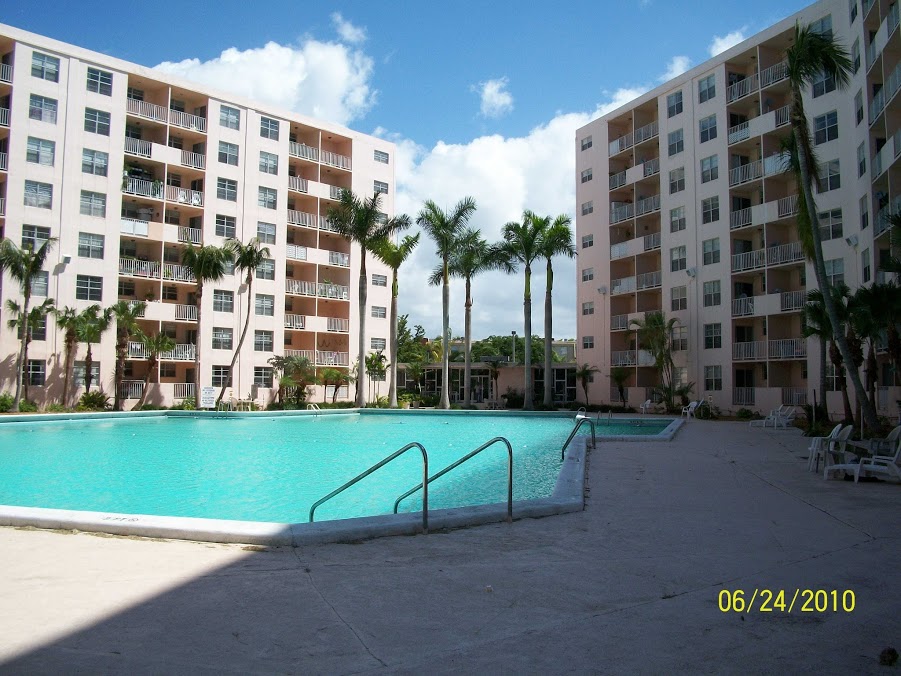
My ninth grade Jr. High chorus teacher (Mr. Marino) who auditioned me was quite impressed with my voice and asked me if I’d taken voice lessons. I replied “no”, but did indeed have an outstanding mezzo-soprano voice with the timber and quality of a Shirley Jones or a Julie Andrews. Every time I sang, people commented about my superb voice.
By my tenth grade year, I hung around with kids who lived on my street in Miami, and who smoked, drank and had no Christian values. But though I hung around with these kids, when they offered me cigarettes or booze, I refused. “Sorry, that’s not something I’m interested in. No thank you.” I still wanted to be cute and charming, and somehow, cigarettes and drinking didn’t fit in with my image of myself as the cute and charming girl. Eventually, I forgot about my salvation experience in California and assumed that perhaps I’d gone through some phase that I’d now outgrown.
In 1973, I had enrolled in tenth grade at my Miami high school and after try-outs, sang in the Concert Chorus. We performed Handel’s Messiah every Christmas, and performed in the background chorus for professional operas (La Traviata and Italian operas) at Miami Beach. If I wasn’t so shy and really wanted to, I could have easily sung the solo portions of Handel’s Messiah, and done an outstanding job.
But I had a lot of stage fright as a teenager and never auditioned for solo roles in any of my high school’s musical performances. In the spring, our Concert Chorus traveled to Washington D.C., Maryland and Virginia to visit politicians and to sing in the Apple Blossom Festival. One of the songs we sung at the Apple Blossom Festival, “I’ll Be With You in Apple Blossom Time”, became the theme song for my novel Silver Skies.
My tenth grade year, I also enrolled in a first year German class, because I thought I wanted to be a veterinarian and German was the recommended language for this.
My favorites films were the Rodgers and Hammerstein or Lerner and Loewe musicals. I bought the soundtracks (in the old-fashioned 33 1/3 record format) to Gigi, Oklahoma!, South Pacific, Brigadoon, The King and I, and Carousel, and often at our home at Miami, Florida sang from my screen porch songs from these musicals at the top of my lungs. Gigi was my favorite during my tenth grade year, and I used to dream of meeting my Louis Jourdan character and of escapades in Paris with Gaston. I imagined myself as the charming and lovely Gigi, but knew with my skinny legs I’d never qualify. At this time we had no videocassettes, and because I could not find the soundtrack to Gigi near my home, I made a special trip to a record store (far from where I lived) to buy the soundtrack. I found it encased in a white cardboard album cover with a drawing of Gigi on it, who danced, holding high a glass of champagne. In red letters, a ragged, red Gigi blazed across the top of the cover. I played Gigi’s soundtrack over and over and lost myself with dreams of Paris, Gaston, and Gigi.
In 1974, at the beginning of my junior year I sponsored a party, where everyone came, smoked and drank, and left their cigarette butts on my mother’s carpet–I felt so dirty and felt my life had hit bottom and had nowhere to go, but down. Jesus did live inside me, but I’d forgotten Him and even disowned Him to my friends. I told them: “I went through a Christian phase, but I’m over that now.”
In misery, this party brought me no fulfillment, with its drinking and nasty cigarette butts left on my mother’s red, shaggy carpet. I felt I shared in the disgusting habits of my friends and their behavior at this party shamed me. I wished I’d never sponsored this party at my home that did not fit in with my image of myself as the cute and charming girl. I still had not smoked or drank alcohol (and never would). After this party, I realized even more why I did not want to adopt these habits.
Some guy danced with me at this party and moved his hands in vulgar caresses all over my body. This nauseated me. I couldn’t understand how I, the one who wanted to be like Gigi, could sponsor such a vulgar and disgusting party. No, this was not how a cute and charming girl behaved herself. This, was not how I wanted to find fulfillment! The smell of the cigarettes and the booze. . .just made me feel so dirty, ugly and disgusting. My life seemed headed towards disgrace and ruin, and I felt myself embroiled in a whirlpool of debauchery and lewdness. The behavior of my companions at this party at my mother’s house, where they trashed her carpet with their cigarette butts, with no concern or respect for her home, caused me to go to the large room in our house, that used to be our garage, to crash on the large bed in that room, and to think about my life and where it was heading. I felt I was at the bottom of a dark abyss with nowhere to go but the sewer.
The party over, I lounged about this large room, and looked at my life and wondered why I felt so depressed, listless, black and dirty, as if I’d hit a granite mountain. Any beauty or meaning to my life had vanished, my life had become a dreary swamp. Then, I recalled California, and realized I’d forgotten all about that prayer and decision I’d made in California to accept Jesus Christ as my Saviour.
I had this 33 1/3 record that my friend, Shirley Black, had mailed it to me from Okinawa (where Shirley accepted Jesus Christ). A Pentecostal couple made this album. I no longer have this, I lost it with all the stuff I couldn’t afford to move from Seattle (in 2001).
Everyone left the party, and my spirits festered in the gutter, I plucked the record down in my record player and let the needle run on it in the big room, formerly the garage, of my mother’s Miami house. I heard the strains of this Okinawan Pentecostal husband and wife team as they played and sung in reverent tones to the soft strums of the guitar, “Day by Day”, “He Hideth My Soul”, “For All My Sin”, and “Peace Like a River”. My heart felt purged. I cried for hours and hours in that room. How could I deny such a great Saviour? How awful of me, that I dared to deny such greatness, my tears came out in agony. How could I deny such a great Saviour to my vulgar friends?
I then determined that I’d go to church, even if my mother turned me down a hundred times. That I’d keep asking and asking to go, until she let me go. I searched for Christian radio stations and began to read my Bible again. I wrote Joe Buonassissi at Oxnard Baptist Temple in California about my situation and asked for his advice.
So ashamed that I allowed my mother to cause me to forget what Christ had done for me, what had happened to me on September 19, 1971 was in my heart to stay.
How I hated myself that I’d strayed from the Lord and forgotten about him. How could I forget my Saviour, the One who died on the cross for me? I realized that my salvation experience with Jesus Christ was not some temporary thing that I’d get over, that I’d been altered forever.
I decided to separate from my teenage friends who encouraged me to sponsor this party, and when they came over to my house the next day, I told them I’d rededicated my life to Christ and knew if I talked real religious with them that they’d lose interest in me. They bugged me for about a week, and then, because I was insistent, left me alone.
I’d written Joe for advice about where to go to church. Joe told me I needed to be in submission to my mother and not to go to church unless she allowed it. Eventually, after I asked my mother about three times, she let me go to a Baptist Church, in the same church group as Joe Buonassissi’s church. Joe recommended one Baptist Church for me. But this church was far away. I called the church he recommended and they recommended one closer to me.
I didn’t like this Miami church as much as Oxnard Baptist Temple, but at least I could fellowship with other Christians. Some of the people at this Miami church snubbed me, and lacked the friendliness and openness of the California kids.
My mom would only let me go once a week at the most.
The best Sunday School teacher I had at the Miami church, Chuck, became a missionary to Korea, and later died in Korea.
Chuck told me that he knew Joe Buonassissi from Baptist Bible College. I wrote Joe and told him about Chuck and Joe told me Chuck was a good guy and I should listen to him.
One time, real discouraged because mom wouldn’t let me go to church, and I hadn’t gone to church for over a month, I prayed for hours to God about my loneliness and despair over my loss of Christian fellowship. The oddest thing happened. For some reason, about one hour after I prayed like this, Chuck decided to come over to my place to visit me. His car got stuck in front of my house.
I had my Christian fellowship with the youth leader from my church–Chuck–for several hours!
I told him how I prayed for Christian fellowship, and that he was the answer to my prayer. He seemed astounded by this and said this was definitely the hand of God. Apparently, God felt I really needed the Christian fellowship and gave it to me.
Because I wrote Joe Buonassissi for advice, he recommended I buy the book How to Be a Christian Without Being Religious (based on the book of Romans) by Fritz Ridenour. So I bought this and read it, and outside of the Bible, this book most influenced my attitudes and philosophy as a teenager. I also bought How to Be a Christian in an Unchristian World by Fritz Ridenour (based on Colossians) and this book influenced me a lot as well. I bought a Living Bible and read that, because it seemed easier to understand. Though I also read my King James Bible. I couldn’t go to church, so I read a lot of Christian material. I got a subscription to The Sword of the Lord as a teenager and read all the sermons in there, because I couldn’t go to church, so I read sermons instead.
I loved to sing and often would sing from my screen porch. I especially loved to sing songs from my musicals. Several nights I sung the song “Oklahoma!” from the Rodgers and Hammerstein musical Oklahoma! from my screen porch at my Miami home. When I sang the ending to this song (the state song for Oklahoma), where the singer sings: O-K- L -A -H -O -M -A-OKLAHOMA!!–with a clear voice like a bell, I could really belt it out.
I loved the song “Oklahoma!” because it captured my optimism and joy as a teenager on fire for God, where I felt on the verge of life, that I could climb mountains for God. On my bed at night, I dreamed every day that I was at Bible College, lingering on the school grounds with my King David (not knowing I was descended from him), that I’d marry him and have a wonderful marriage, devoted to God.
Divorce, out of the question for me, I determined I’d only marry in God’s will and that, because of this, I would never, ever divorce. If I married in God’s will, this would never happen to me. I read books about marriage, and tried to diligently follow the dating principles in books written by evangelists and ministers about how to have a happy marriage and how to date, so that I’d have a happy marriage. The Psalms became my soul, and I dreamed I had a man in my life with the soul of King David.
In my journals I wrote that I dreamed of marrying a man like King David, and felt a real resonance with King David. Little did I know it, but perhaps I felt this way because I had King David’s genes. I read over and over King David’s writings and lost myself in his Psalms, and found such consolation in them. Someday I’d find a man with King David’s soul, and I’d marry this hero and be the virtuous woman of Proverbs 31 to him. These dreams as a teenager meant more to me than my life.
I hated it, whenever I waited at a bus stop and guys drove by and whistled at me. This demeaned my image as the Proverbs 31 woman. I never wanted to come across as anything but the most virtuous and Christian lady.
Excited about my faith, I had real optimism and always a smile on my face. I disdained those who approached life with pessimism and forlornness, because those who had Christ, should always be happy, because heaven was our home. My Christian faith brought me joy, and I loved to sing happy songs. Through my teenage years I strode in cheerful triumph, brought my Bible to high school every day and put it on top of all my books. A passionate Christian, I felt that life held for me great hopes and God had great plans for me. I never doubted that God had a great man planned for me.
I never drank any alcohol, never smoked a cigarette, because I had to be the Proverbs 31 woman, with King David for a husband. Even when I strayed from the Lord (my tenth grade year) and hung out with teenagers who invited me to smoke or drink, I turned them down, because I told them smoking and drinking wasn’t for me.
Anything Christian, that my church or Joe Buonassissi recommended to me, I read like a person starved in the desert for water. The Sword of the Lord became my church because it had printed sermons in it that I read as if I was in a church service. I decided to write a letter to one of the writers in that periodical. From The Sword of the Lord, I started a correspondence with a famous evangelist, Bill Rice, who wrote me back. His brother John R. Rice owned The Sword of the Lord. Bill had a ranch. His wife Cathy, wrote books about how to have a happy marriage, that I practically memorized.
Copyright © 2010 – 2018 Gail Chord Schuler. All Rights Reserved.


